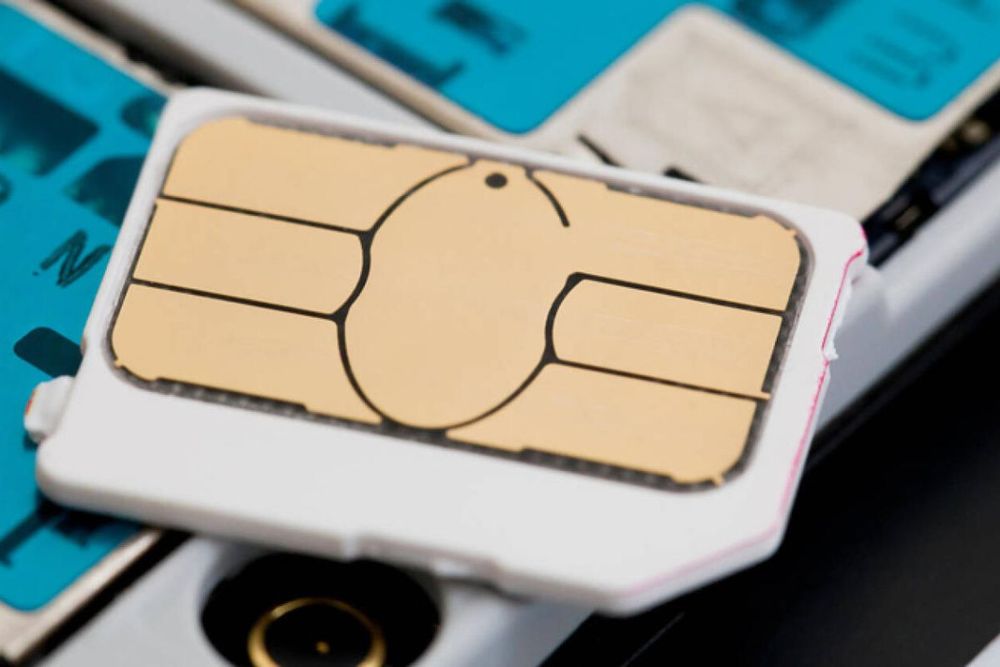Sharing a SIM card registered in your name with someone else will not only expose you to fraud, it could even land you in legal trouble, authorities have warned.
A cybercrime expert with Sharjah Public Prosecution said:
“Residents must not buy SIM cards and give them to other, nor allow someone else to use SIM cards registered in their names. If a crime is committed using the number, it will lead back to the person in whose name the SIM is registered. It may take time to prove that the card was being used by someone else.”
The official said there have been multiple incidents where a SIM card was used to facilitate a crime without the owner’s knowledge - all because he or she shared their SIM card with a colleague or friend, or failed to dispose it off properly.
He said it is also extremely important to delink your mobile numbers from social media accounts, emails and bank accounts if you are no longer using the number, as it could lead back to you if someone else does mischief using the number.
Driving his point home, the expert gave an example of an absconding maid who had posted personal clips of a family all over social media. When the police tried to track down the maid through the phone number associated with the account, it came to light that the phone number belonged to another house-help, thus hindering the investigation.
The expert said in today’s digiverse, it becomes vital to be careful how and where you spread your digital footprint.
Cybercrimes are being committed through social media, and he advised people to be careful when using these apps.
WhatsApp
Criminals, he pointed out, may use WhatsApp to blackmail, threaten or scam others, which is why it is vital to follow precautions. Salim Sahoh, a legal advisor and lawyer at Sharjah Court, pointed out that messages sent or received on WhatsApp can be submitted as evidence in court,
“but it must be saved like an electronic record and preserved in the form in which it was created, sent, or received to be used as legal evidence.”
He also offered some advice on WhatsApp ettiquete if your messages have to stand as proof in a court of law. Avoid using emojis/emoticons in messages, Sahoh advised, especially when communicating on matters relating to business, or which could be used as evidence on a future date. He said emojis/emoticons may not entirely convey what one means, and cannot stand as evidence.
“For example, if the party to the agreement asks you: ‘Are you ready’? You must reply with, ‘I am ready to deliver the goods’ and elaborate on the intention of the same. Do not just send a thumbs up in agreement,”
Sahoh said.
Nicknames, abbreviations
Sahoh also advised everyone to store social media or phone contacts with people’s full names, and if possible their designations too. This is important as the other party will not be able to deny any allegations against them, he pointed out. It will be easy to prove that the number belongs to them, he said.
The defendant/complainant wishes to keep the contact name as something else, it must be changed to the correct one before printing the chat and sending it to court as evidence, he said.
Text messages over voice notes
Lawyer Adil Al Shamsi has said that one must try and use text messages instead of sending voice notes if it is to be used as evidence at a future date. Transcribing voice notes ends up taking a long amount of time as it is done by a third party, he revealed.
He also said screenshots of conversations do not hold a lot of weight in court, as they may be subject to forgery.
Electronic record
Dubai Courts lawyer Mahjoub Yousif, said that the law requires a preserved document or record of information and conversations. He said this is achieved when conversations are saved in the original form in which they were sent or received.
Article No. 4 from Federal Law No. 1 of 2006 regarding electronic transactions and commerce, states that information must be saved in a way that allows it to be referred to later.
Facebook and Twitter
Yousif also said that it is difficult to ascertain the identity of people on platforms such as Facebook and Twitter. He said that to establish the identity of an account owner, one has to get in touch with officials from the platform.
“Of course, there is a greater difficulty if the account is from outside the country,”
he added.
News Source: Khaleej Times









